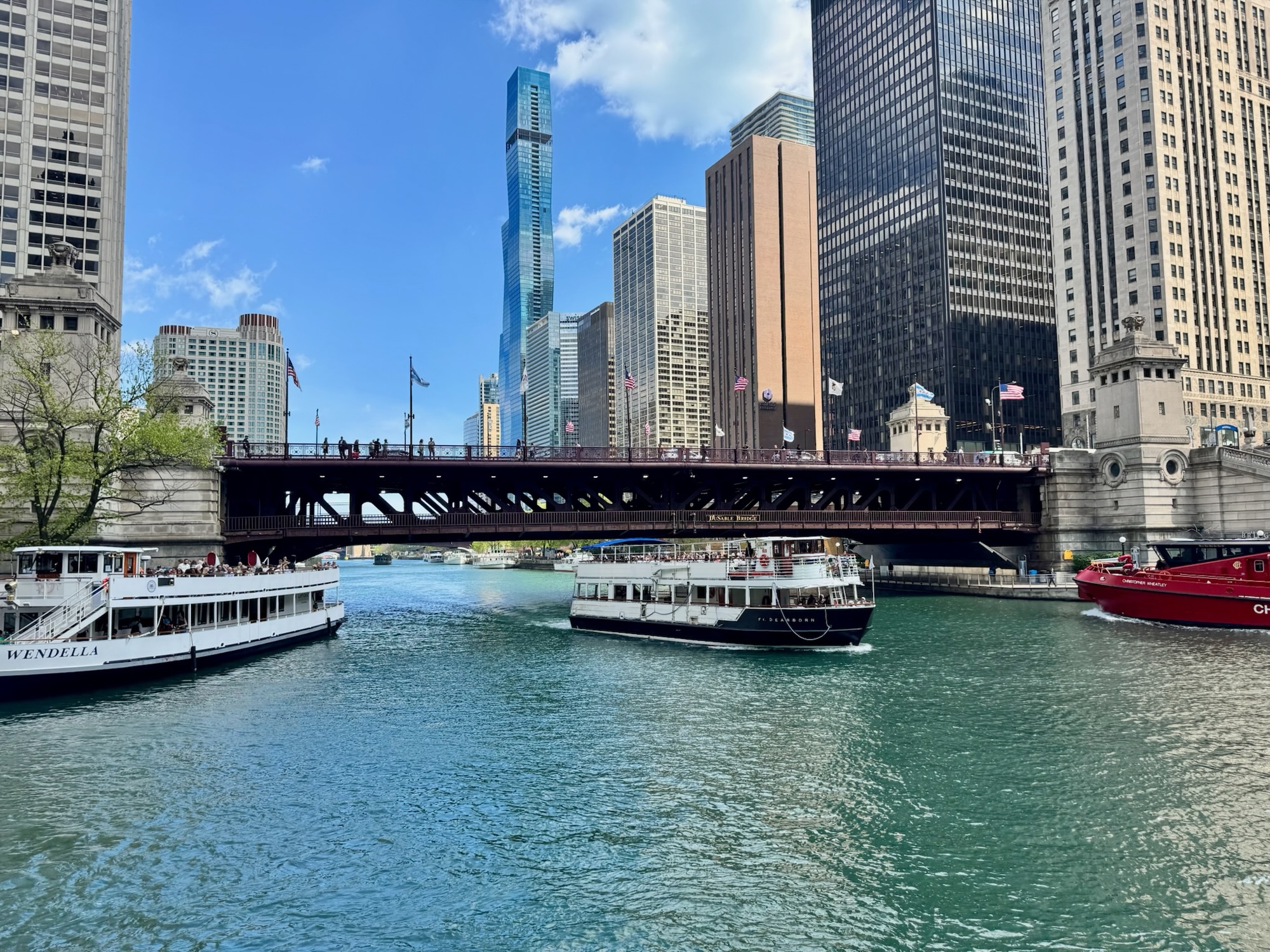
It’s been over 50 years since I called Chicago’s south suburbs “home“. Calumet City, South Holland, and finally Crete.
Until five years ago there was a place and a person that welcomed me “home“. Then my mother passed from this life to…? She is still in my contacts and I saved her last voicemail message to me. Rarely a day go by that I do not hear her voice in my heart, “… Peter Michael…!“

Christine and I are in Chicago for four nights, enjoying the sites and activities of the downtown. We flew in and do not have a car. This is perhaps the first time that I have not visited “home“ and connected with old friends here.
We have not been idle. A visit to the Field Museum, a water taxi to Chinatown, an evening at the theater, an afternoon of baseball at Wrigley Field, THE CUBS! Of course, there are the dining experiences and relaxed stays at two upscale downtown hotels, The Club Quarters River Hotel and the Korean themed L7 Hotel.
All of this is a prelude to a 52+ hour cross-country train journey via Amtrak. Christine and I have taken overnight sleeper trains many times in Europe, but none of this duration or with these amenities. We have a private compartment with bath and shower. There is private dining, an observation car (should we grow tired of our own picture window), and a steward assigned to our compartment (yes, room service!). The train stops will include Omaha (Nebraska), Denver and Winter Park (Colorado), Salt Lake City (Utah), Reno (Nevada), and our final destination, San Francisco, California.
We could have planned overnight stays in any of those cities but chose to take the entire route as a continuous journey for the experience. We imagine that there will be delays since passenger trains in the United States take second priority to freight trains. We will spend four nights in San Francisco before flying home to Kansas City.
What follows here is a diary and visual buffet of our time in The Windy City:
We flew into Chicago via Southwest Airlines. Cramped, relatively unpleasant, but inexpensive and tolerable for a little over an hour in the air.
Chicago features excellent commuter transport. A three day pass on all Chicago Transit Authority services cost us $15 apiece. It took us about 30 minutes to train from Midway airport to the downtown Loop.


On day one we had enough time in the afternoon to visit parts of Chicago’s Field Museum. To do it justice one really needs a day.






The “Museum Campus“ includes the Field Museum, Museum of Science and Industry, Adler Planetarium, and the Shedd Aquarium. To take in all of these one would need an entire weekend.
A visit to the Millennium Park and the “Bean“ was a must. Just to the south is the Chicago Art Institute, which we have previously visited.

We have achieved over 15,000 steps each day, but it hardly seems like an effort as the weather and scenery have been so pleasant.


Highlights of day two included a river taxi to Chinatown with late lunch.




This was followed by an extraordinary evening downtown at the theater.


We spent two hours enthralled by the production of Hadestown (nominated for 14 Tony Awards). If this ever comes to your community it is a must see!


Day three found us at Chicago’s Wrigley Field to watch the Cubs lose to the San Francisco Giants.


We were 12 rows up from the field and I came within 3 feet of fielding a fly ball.



Earlier in the day I had learned that a high school friend (Crete-Monee class of 1970) would be at the game. Among the thousands of spectators we sought out and found classmate Bobbi Decker for a brief reunion.

Our original plan had been to spend four nights at the Club Quarters River Hotel. The accommodations were acceptable and concierge,Jock, was a delight!

However, we decided to look for something more upscale for the final 2 nights. We secured a suite of rooms at the Korean themed L7 Hotel, and all I could say was “Wow“! It was a good move.




Dinner at The Evie Restaurant on Michigan Avenue capped off a memorable third day.


Day four and we took a long leisurely stroll up, down, and around “The Magnificent Mile”, Michigan Avenue.







During the sojourn we learned the identity of the new Pope. The city was abuzz with the news that one of its own was the new Pontiff, Leo XIV! “Da Pope” (that’s Chicago speak) and I grew up at the same time a few miles apart in neighboring parishes.
Of course, there was some shopping.

We were fortunate to secure a late afternoon reservation at Pizzeria Portofino on the river.

The food and ambiance were excellent, but the real highlight was our server, Ellee.

It was only her third shift but she handled the packed venue like a seasoned veteran. Ellee is looking forward the development of her business (interior design and organizing home and office environments). Near to our hearts is her upcoming trip to Portugal and Spain.
To Ellee’s mom: Be proud, you raised her well!
Day four concluded with a stroll down Chicago’s River Walk, the setting sun to our backs and a cold Lake Michigan wind in our faces…

…But at the end of this long day it was Richardo who served the BEST martinis!

Tomorrow begins Part 2, we board our train to San Francisco.
Peace Everyone. Pete
PS. Upon reflection this occurred to me, 1972. I was barely 20 years old and it was 2 years before I met Christine. I was passenger on a couple of other notable train trips: London to Paris; at the English Channel the train was uncoupled in segments and rolled into an ocean ferry. We crossed the Channel, dining on deck above and sleeping in our train compartments below. Later that summer I travelled on the Orient Express, 23 hours Belgrad Yugoslavia to Paris France (2nd class, and nothing like in the movies. It was brutal).

































